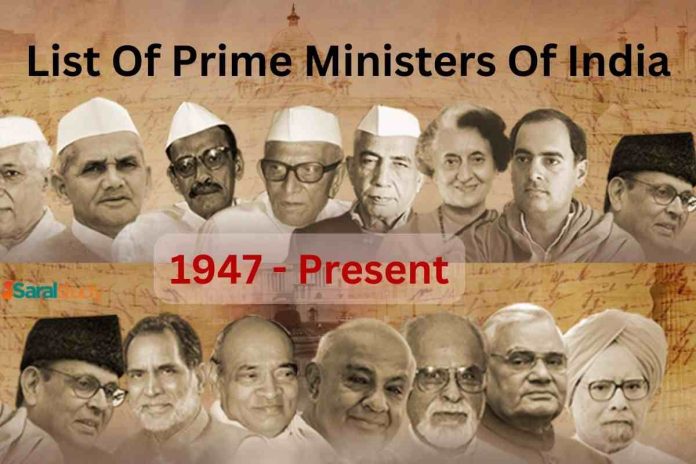India, which is the most popular and the biggest democracy in the World has a wide parliamentary system with the Prime Minister of India, who is the chief executive of the Government of India. Under the parliamentary or semi-presidential system, the Prime Minister is the leader of the Ministers and head of the Cabinet in the executive branch of government.
The Prime Minister also has the authority to dismiss or select the other cabinet members. Nowadays, the Prime Minister sometimes often may be a member of the lower house of the legislature, and being the head of the government, the prime minister also holds some other posts and roles.
Introduction
The prime minister is appointed by the President of India and usually, in the Indian Parliament, the prime minister is the chairperson of the majority party of the government. The role of the prime minister is to appoint a committee of the cabinet, Ministry of Planning, Ministry of Personnel Pensions, and Public Grievances Department of Atomic Energy and Space.
The prime minister also performs the duties of various international meetings, organizations, and conferences. And to vote in the elections for the prime minister a person should be a citizen of India, and should be a member of the Rajya Sabha or Lok Sabha, and should be age above 25-30 years.
List of Prime Ministers of India
The first prime minister of India was Pt. Jawaharlal Nehru from the “Indian National Congress” and the current prime minister is Narendra Modi from the “Bharatiya Janata Party”. Despite that India has had fifteen prime ministers since the day of Independence in 1947. There is the list of the Prime Ministers of India from the years 1947 to 2024 under the table given below:
| Name of Prime Ministers | Photo of PMs | Working Period | Party | |
| Shri Jawaharlal Nehru |  |
1947 – 1964 | 16 years, 286 days | Indian National Congress |
| Shri Lal Bahadur Shastri |  |
1964 – 1966 | 1 year, 216 days | Indian National Congress |
| Shri Gulzarilal Nanda |  |
1966 – 1966 | 13 days | Indian National Congress |
| Mrs. Indira Gandhi |  |
1966 – 1977 | 11 years, 59 days | Indian National Congress |
| Shri Morarji Desai |  |
1977 – 1979 | 2 years, 126 days | Janata Party. |
| Shri Chaudhary Charan Singh |  |
1979 – 1980 | 170 days | Janata Party (Secular) |
| Mrs. Indira Gandhi |  |
1980 – 1984 | 4 years, 291 days | Indian National Congress |
| Shri Rajiv Gandhi |  |
1984 – 1989 | 5 years, 32 days | Indian National Congress |
| Shri Vishwanath Pratap Singh (V. P. Singh) |  |
1989 – 1990 | 343 days | Janata Dal (National Front) |
| Shri Chandra Shekhar |  |
1990 – 1991 | 223 days | Samajwadi Janata Party |
| Shri P.V Narasimha Rao |  |
1991 – 1996 | 4 years, 330 days | Indian National Congress |
| Shri Atal Bihari Vajpayee |  |
1996 – 1996 | 16 days | Bharatiya Janata Party |
| Shri H.D Deva Gowda |  |
1996 – 1997 | 324 days | Janta Dal (United Front) |
| Shri Inder Kumar Gujral |  |
1997 – 1998 | 332 days | Janta Dal (United Front) |
| Shri Atal Bihari Vajpayee |  |
1998 – 2004 | 6 years, 64 days | Bharatiya Janata Party |
| Dr. Manmohan Singh |  |
2004 – 2014 | 10 years, 4 days | Indian National Congress |
| Shri Narendra Modi |  |
2014 – incumbent | 10+ years | Bharatiya Janata Party |
Let’s discuss all the details briefly one by one below.
Detailed All PM List Of India
The Prime Minister of India is the head of the government and plays a crucial role in the administration and policy-making of the country. Since India’s independence in 1947, the nation has seen several leaders who have shaped its destiny. We will see the detailed list of all PM of India here.
1st Prime Minister of India: Pt Jawaharlal Nehru (1947-1964)

Shri Jawaharlal Nehru was born on 14th November 1988 and was also an Indian independence activist. He was the first and the longest-serving prime minister of India since the date of independence and served in the country until his death in 1964 he was also called Pandit Nehru due to his birthplace in the Kashmiri Pandit community and also named Chacha Nehru due to the love for the children. Today, Children’s Day is celebrated on the day of his birth anniversary (14th November) in remembrance of his memory.
Political career and key contributions of the first prime minister of India:
- Early Life: Born on November 14, 1889, in Allahabad. Educated in the UK at Harrow and Trinity College, Cambridge.
- Political Career: Joined the Indian National Congress, played a pivotal role in the freedom movement.
- Political Party: Indian National Congress
- Key Contributions: Architect of modern India, established the Planning Commission and spearheaded India’s non-alignment policy.
2nd Prime Minister of India: Shri Lal Bahadur Shastri (1964-1966)
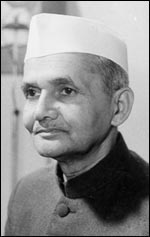
Lal Bahadur Shastri was born on 2nd October 1904. He joined the Indian independence movement in 1920 later after the independence he joined the “National Congress party” and became the key cabinet colleague of Jawaharlal Nehru and served India in numerous positions such as the Railway Minister and Home Minister. During the Indo-Pakistan War in the year 1965, his slogan “JAI JAWAN JAI KISAN” became very famous. His political career runs under the years 1947 to 1964 & in the year 1964, he became the second Prime Minister of India after the death of Jawaharlal Nehru.
He had continued the socialist, economic policies as per the guidelines of Nehru with central planning and died in 1966 at Tashkent, Uzbekistan (one day after signing the peace treaty to end Indo-Pakistan War).
Political career and key contributions of Shri Lal Bahadur Shashtri
- Political Party: Indian National Congress
- Key Contributions: Promoted the White Revolution, led India during the Indo-Pak war of 1965, and coined the slogan “Jai Jawan Jai Kisan.”
3rd Prime Minister of India: Shri Gulzarilal Nanda (1964, 1966)
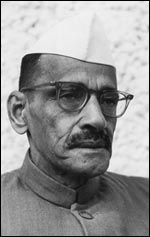
Gulzarilal Nanda was born on 4th July 1898. He was a specialized economist and politician in the “labour issue”. He had the chance to become the Prime Minister of India for a short period twice after the death of Jawaharlal Nehru in 1964 and Lal Bahadur Shastri in 1965 as he was in the position of the Home Minister in both times and his term ended until the Indian National Congress’s parliamentary party elected or assigns the new prime minister. He was also awarded Bharat Ratna.
4th & 7th Prime Minister of India: Indira Gandhi (1966-1977 & 1980-1984)
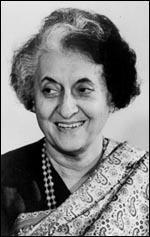
Indira Priyadarshini Gandhi was born on 19th November 1917 and was the daughter of the Jawaharlal Nehru. She was the first women prime minister of India and also the central figure of the “Indian National Congress”. She was the second longest-serving prime minister of India. The slogan of “Garibi Hatao” became very famous which was in support of the rural and urban poor. In the Indo-Pakistan War, her biggest achievement was the decisive victory over Pakistan.
She had also served India in many positions such as the Ministry of External Affairs, Ministry of Home Affairs, Minister of Defence, minister of Information, and Broadcasting, and she was assassinated in 1984 by two of his Sikhs bodyguards by their service weapons in New Delhi to take the revenge for Operation Blue Star.
Political career and key contributions of the First Lady Prime Minister of India:
- Early Life: Born on November 19, 1917, in Allahabad. Studied at Visva-Bharati University, Shantiniketan, and the University of Oxford.
- Political Career: Served as the Minister of Information and Broadcasting before becoming Prime Minister.
- Tenure Achievements: Led India to victory in the 1971 war, abolished the Privy Purse, and implemented the 20-point program during the Emergency.
- Political Party: Indian National Congress
- Key Contributions: Green Revolution, nationalization of banks, led India during the Bangladesh Liberation War.
5th Prime Minister of India: Morarji Desai (1977-1979)
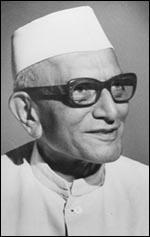
Morarji Ranchhodji Desai was born on 29th February 1896. He was the Indian independence activist and also the fifth prime minister of India. He was appointed as prime minister of India in the year 1977. Since the war in 1962, he restored normal relations with China for the first time after the war. He also established a friendly relationship with Pakistan. He also played a crucial role in the Indian Nuclear Program in 1974 he also worked for the decimation of R&AW.
He was also honoured as the freedom fighter in his generation and also a socialist and moralist. After the retirement, he lived in Mumbai and died at the age of 99 years in 1995.
Political career and key contributions of Shri Morarji Desai
- Political Party: Janata Party
- Key Contributions: Emphasized administrative reforms, initiated the anti-corruption drive, and improved relations with Pakistan through the Simla Agreement.
6th Prime Minister of India: Shri Charan Singh (1979-1980)
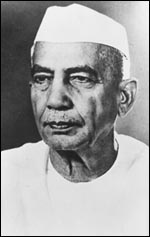
Chaudhary Charan Singh was born on 23rd December 1902 and serves India as the sixth prime minister. He was also referred to as “Champion of India’s Peasants”. He won the Lok Sabha election from the “Janata Party” in 1977 and was asked to resign in 1978 for the following disagreement with Morarji who was the Home Minister at that time but came back again to the cabinet as the prime minister in 1979 however, after 23 days of becoming the prime minister he again resigned on 20 August 1979.
Despite that his birthday is celebrated as “Kissan Diwas” on 23rd December every year in India and the Amausi Airport in Lucknow, Uttar Pradesh was also renamed after him as the “Chaudhary Charan Singh Airport” and in his honor the University of Meerut, Uttar Pradesh was also named after him as “Chaudhary Charan Singh University”.
Political career and key contributions of Shri Charan Singh
- Political Party: Janata Party (Secular)
- Key Contributions: Focused on agrarian reforms, introduced policies for farmers’ welfare.
8th Prime Minister of India: Rajiv Gandhi (1984-1989)
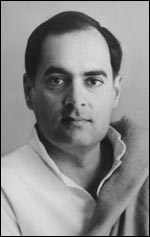
Rajiv Ratna Gandhi was born on 20th August 1944 and was served as the prime minister of India. He took office after the assassination of his mother, Prime Minister Indira Gandhi, and became the youngest prime minister of India at the age of 40 years. His first action after being the prime minister was to pass the Anti-Defection Law in 1985. He also increased government support in technology, science, and associated industries reduced taxes and tariffs on technology-based industries, import quotas.
He also announced the National Policy of Education in 1986 and founded the Jawahar Navodaya Vidyalaya system. He also served as the Pilot in Indian Airlines and also works for different foreign policy and at the age of 46 years, he was also assassinated by the LTTE suicide Bombay in 1991.
Political career and key contributions of Shri Rajiv Gandhi
- Early Life: Born on August 20, 1944, in Bombay. Educated at the Doon School and Trinity College, Cambridge.
- Political Career: Entered politics after the tragic death of his brother Sanjay Gandhi, and became Prime Minister after Indira Gandhi’s assassination.
- Tenure Achievements: Pioneered India’s information technology and telecommunications revolution, and initiated efforts to reduce bureaucracy.
- Political Party: Indian National Congress
- Key Contributions: Introduced the IT and telecom revolution in India, promoted modernization and liberalization, and led anti-defamation and anti-terrorism laws.
9th Prime Minister of India: Shri Vishwanath Pratap Singh (1989-1990)
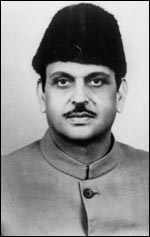
Vishwanath Pratap Singh was born on 25th June 1931. He was an Indian politician and became the prime minister in 1989. After a few days of taking the office, he faces a crisis as the Kashmiri military kidnapped the daughter of his Home Minister Mufti Mohammed Sayeed who was the former Chief Minister of Jammu & Kashmir therefore, his government agreed to release the militants in exchange for sort-out the crisis. He also enacted the “SC-ST Act of 1989” to prevent the atrocities against the members of the Scheduled Tribes & Scheduled Castes.
He also moved forward on the social-justice-related issues and decided to implement the Mandal Commission and after his huge efforts to India, he died in Delhi on 27th November 2008.
Political career and key contributions of Shri V P Singh
- Political Party: Janata Dal
- Key Contributions: Implemented the Mandal Commission report, provided reservations for OBCs, and initiated measures for transparency in governance.
10th Prime Minister of India: Chandra Shekhar (1990-1991)
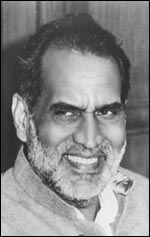
Chandra Shekhar Singh was born on 1st July 1927 and was the prime minister of the second shortest period of seven months after Charan Singh. During his period, he handled the portfolios of home & defence affairs.
However, as the congress withdrew support during its formulation on 6th March 1991 that’s why his government was unable to introduce the full budget and consequently, he had to resign from the office on the same day.
Political career and key contributions of Shri Chandra Shekhar
- Political Party: Samajwadi Janata Party
- Key Contributions: Addressed economic challenges, and negotiated with the IMF for economic aid.
11th Prime Minister of India: Shri P V Narasimha Rao (1991-1996)

Pamulaparthi Venkata Narasimha Rao was born in 28th June 1921. He was an Indian lawyer and politician and became the prime minister in 1991. He adopted to avert the impending economic crisis in 1991, his government also reduced the fiscal deficit and progressed in the areas of opening up foreign investments and energising the National Nuclear Security & Ballistic Missile Programme. He appointed Dr. Manmohan Singh an economist as his Finance Minister to accomplish his goals.
He was also referred to as the “Father of Indian Economic Reforms”. However, soon the Sonia Gandhi supporters forced him to step down as the Party President and therefore replaced by Sitaram Kesri after making many huge efforts as the prime minister he also faced many financial difficulties and died from a heart attack on 9th December 2004.
Political career and key contributions of Shri P V Narasimha Rao
- Early Life: Born on June 28, 1921, in Karimnagar. Studied at Osmania University, University of Mumbai, and Nagpur University.
- Political Career: Served in various capacities including Chief Minister of Andhra Pradesh, Defense Minister, and Foreign Minister.
- Tenure Achievements: Liberalized the Indian economy, dismantled the License Raj, and initiated reforms that attracted foreign investments.
- Political Party: Indian National Congress
- Key Contributions: Launched major economic reforms, liberalized the Indian economy, and introduced policies that encouraged foreign investments.
13th Prime Minister of India: Shri H D Deve Gowda (1996-1997)
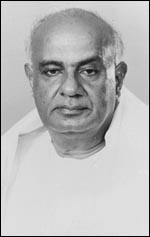
Haradanahalli Doddegowda Deve Gowda was born on 18th May 1933. He was an Indian politician and became the prime minister in 1996 when the United Front with the support of the Congress decided to form the government at the centre then Deve Gowda was chosen unexpectedly as the prime minister of India and continued until 1977.
He was also appointed as the Chairman of the Steering Committee of the United Front and was also credited for providing financial closure in the development of the Delhi Metro Project.
Political career and key contributions of Shri H D Deve Gowda
- Political Party: Janata Dal
- Key Contributions: Focused on rural development, initiated policies for farmers’ welfare.
The 14th Prime Minister of India: Shri Inder Kumar Gujral (1997-1998)
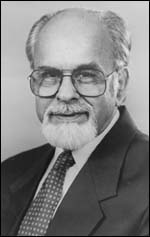
Inder Kumar Gujral was born on 4th December 1919. He was a freedom and politician activist, and an Indian diplomat also. He became the prime minister of India in 1997. He is also remembered for his Gujral Doctrine which is a set of five principles to guide the conduct of foreign relations with India’s immediate neighbours such as Pakistan he also served the country as the minister of external affairs.
He died on 19th November 2012 with the illness of Lung infection.
Political career and key contributions of Shri Inder Kumar Gujral
- Political Party: Janata Dal
- Key Contributions: Advocated the Gujral Doctrine for India’s foreign policy, focused on improving relations with neighboring countries.
12th, 15th & 16th Prime Minister of India: Shri Atal Bihari Vajpayee (1996, 1998-1999, 1999-2004)

Atal Bihari Vajpayee was born on 25th December 1924. He served three terms as the Prime Minister of India. The first term was in 1996 which is of 13 days, the second term was in 1998-99 which was 13 months, and then followed the third full term in 1999-04. He was the co-founder and senior leader of the BJP despite that he was also a famous poet and writer and over the five decades, he was also a member of the Indian Parliament.
The Pokhran-II Nuclear test in 1998 was conducted during his tenure as the prime minister. He also serves the country as the Ministry of External Affairs. And died on 16th August 2018 due to his illness. His birth anniversary is celebrated as the “Good Governance Day” on the remark of his duties as a politician as well as prime minister.
Political career and key contributions of Shri Atal Bihari Vajpayee
- Early Life: Born on December 25, 1924, in Gwalior. Studied at Victoria College (now Laxmibai College) and DAV College, Kanpur.
- Political Career: One of the founding members of the Bharatiya Janata Party, served as a Member of Parliament for decades.
- Tenure Achievements: Led India to conduct nuclear tests, introduced major infrastructure projects like the Golden Quadrilateral, improved Indo-US relations.
- Political Party: Bharatiya Janata Party
- Key Contributions: Initiated economic reforms, nuclear tests in 1998, introduced the Golden Quadrilateral project.
17th Prime Minister of India: Manmohan Singh (2004-2014)

Manmohan Singh was born on 26th September 1932. He was an Indian Economist, academic, and politician as well and became the prime minister of India in 2004. He was the first Sikh to be the PM of India and was also re-elected after completing the terms of five years from the Indian National Congress. He worked on a better Health & Education system and new laws were also passed in his tenure period such as the Right to Information Act, National Rural Employment Guarantee Act (NREGA), Land Acquisition Act & Right of Children to Free & Compulsory Education Act.
He also continued the pragmatic foreign policies which were started by P.V Narashima Rao. He was also honoured by many awards at the National & International level.
Political career and key contributions of Dr Manmohan Singh
- Political Party: Indian National Congress
- Key Contributions: Implemented economic reforms, introduced policies for social and rural development, and spearheaded the Indo-US nuclear deal.
- Early Life: Born on September 26, 1932, in Gah, Punjab (now in Pakistan). Educated at Panjab University, University of Cambridge, and University of Oxford.
- Political Career: Known as the architect of India’s economic reforms, served as Finance Minister before becoming Prime Minister.
- Tenure Achievements: Implemented landmark economic policies, and advanced social welfare programs, strengthened India’s position on the global stage.
18th Prime Minister of India: Narendra Modi (2014- Incumbent)

Shri Narendra Modi has been the current Prime Minister of India since 2014 as he was re-elected thrice as the head of the government now serving his third consecutive tenure; which equals Jawaharlal Nehru’s record. He is the head of the Councils of Ministers and the leader of the Lok Sabha. He has regulated many policies and schemes for the civilians such as Pradhan Mantri Awas Yojna, generating Ayushman Cards for the treatment of the people up to 5 lacs as the government schemes and so on.
Political career and key contributions of Shri Narendra Modi
- Early Life: Born on September 17, 1950, in Vadnagar, Gujarat.
- Political Career: Served as Chief Minister of Gujarat before becoming Prime Minister.
- Tenure Achievements: Launched significant campaigns like Make in India, Digital India, and Swachh Bharat, implemented the Goods and Services Tax (GST), managed the COVID-19 pandemic response.
- Political Party: Bharatiya Janata Party
- Key Contributions: Launched initiatives like Make in India, Digital India, and Swachh Bharat, implemented GST, successfully drove the Namami Gange project to clean the sacred river Ganga, revoked Article 370, Muslim Women (Protection of Rights on Marriage) Act, 2019; which render Triple Talaq illegal in India starting from August 1, 2019, and led the fight against COVID-19.
Frequently Asked Questions – List of Prime Ministers of India
Q1. Who was the first prime minister of India?
Ans. Pandit Jawaharlal Nehru was the first prime minister of India since the day of independence.
Q2. Who was the first woman to be appointed as the prime minister in India?
Ans. Indira Gandhi was the first woman to be appointed as the prime minister of India.
Q3. Who was the youngest prime minister of India?
Ans. Rajiv Gandhi was the youngest prime minister of India as he held the office of the parliament after the assassination of her mother, Indira Gandhi.
Q4. Why and when is Good Governance Day celebrated in India?
Ans. The Good Governance Day is celebrated on 25th December every year in the remembrance and remark of the former prime minister Atal Bihari Vajpayee.
Q5. Who was the prime minister of India before Narendra Modi?
Ans. Dr. Manmohan Singh was the prime minister of India just before Shri Narendra Modi took oath of PM in 2014.

